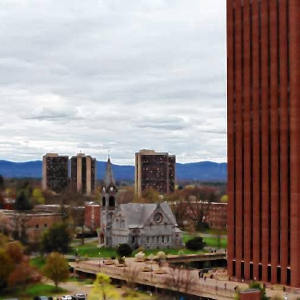Beacon Hill Roll Call: Jan. 30 to Feb. 3, 2023
| Published: 02-09-2023 3:39 PM |
Beacon Hill Roll Call records local representatives’ votes on roll calls from the week of Jan. 30 to Feb. 3. There were no roll calls in the Senate last week.
The House, 153 to 0, approved a package of rules under which the House will operate during the 2023-2024 session. A key section would eliminate a COVID-19-era policy that allowed representatives to debate, offer amendments and vote remotely from their State House offices or home. Another change would institute a new hybrid committee hearing structure that will allow for both in-person and remote participation from legislators and the public. Before the pandemic, hearings were conducted only in person while after the pandemic they were held remotely.
A key and controversial amendment proposed by Rep. Erika Uyterhoeven, D-Somerville, was rejected on a voice vote without debate and without a roll call vote. Her amendment would require that committees make public how each legislator on a House committee voted on bills, including whether to recommend a favorable report or send the bill to a study committee. This would replace an existing rule that requires the committee to only post the names of legislators who voted against the bill and list the aggregate vote tally without names of members voting in the affirmative or not voting.
“Beacon Hill Roll Call asked Uyterhoeven why she didn’t speak on the floor in favor of her amendment and why she didn’t ask for a roll call vote on it.
“I believe (the) amendment … is an improvement that would make the legislative process more accessible and I will continue to fight for changes like this to increase public accessibility and engagement of the legislative process,” Uyterhoeven responded via email. “Unfortunately, today we didn’t have enough support on the proposed changes.”
A “Yes” vote is for the rules package.
Rep. Natalie Blais — Yes
Article continues after...
Yesterday's Most Read Articles
 Greenfield man arrested in New York on murder charge
Greenfield man arrested in New York on murder charge
 Man allegedly steals $100K worth of items from Northampton, South Deerfield businesses
Man allegedly steals $100K worth of items from Northampton, South Deerfield businesses
 Greenfield Police Logs: April 9 to April 17, 2024
Greenfield Police Logs: April 9 to April 17, 2024
 Former Leyden police chief Daniel Galvis charged with larceny
Former Leyden police chief Daniel Galvis charged with larceny
 Shea Theater mural artist chosen out of 354 applicants
Shea Theater mural artist chosen out of 354 applicants
 Millers Meadow idea would ‘completely transform’ Colrain Street lot in Greenfield
Millers Meadow idea would ‘completely transform’ Colrain Street lot in Greenfield
Rep. Aaron Saunders — Yes
Rep. Susannah Whipps — Yes
The House, 23 to 130, rejected a Republican proposal that would increase from 30 minutes to one hour the period given to legislators to read any proposed consolidated amendment to the House budget prior to debate and a vote.
The consolidated amendment system works as follows: Individual representatives file dozens of amendments on the same general subject matters including local aid, social services and public safety. They are then invited to “subject meetings” in Room 348 where they pitch their amendments to Democratic leaders who then draft lengthy, consolidated amendments that include some of the individual representatives’ amendments while excluding others. The House then considers and votes on each consolidated amendment.
“This proposed rule change was filed to provide members with more time to read through what are often very lengthy and sometimes complicated amendments,” said sponsor GOP House Minority Leader Rep. Brad Jones, R-North Reading. “Allowing for additional time to review consolidated amendments would help members gain a better understanding of what is actually included in the amendment so they can make a more informed decision when casting their vote.”
Opponents of the one-hour rule said the current 30-minute rule has worked well and argued that adding additional time will simply drag out what are already long, often late-at-night budget sessions. They also noted that technology has made it easy for each member to discern whether their individual amendment is included as part of the consolidated amendment.
Rep. Sarah Peake, D-Provincetown, argued against the new rule during debate but did not respond to repeated requests by Beacon Hill Roll Call to comment on her opposition to the proposal.
A “No” vote is against allowing one hour.
Rep. Natalie Blais — No
Rep. Aaron Saunders — No
Rep. Susannah Whipps — No
The House, 23 to 130, rejected a GOP proposal that would require the House and Senate to annually adopt by March 31 resolutions stating the minimum amount of local aid the state will give each city and town for that fiscal year.
“Due to the timing of the state budget process, cities and towns must often craft their own municipal budgets without knowing how much local aid they will be receiving,” said sponsor Rep. Brad Jones, R-North Reading. “By establishing a minimum baseline for local aid each year before the state budget is finalized, we can give municipal leaders a solid starting point on which to base their budgets.”
Opponents of the new rule said the Legislature should inform cities and towns as soon as possible but should not have its hands tied by some arbitrary date. They noted things often change in a matter of days and argued that the Legislature does not know in March what the state’s financial situation will be when a budget is finally approved in May or June.
Rep. Bill Straus, D-Mattapoisett, argued against the new rule during debate but did not respond to repeated requests by Beacon Hill Roll Call to comment on his opposition to the proposal.
A “No” vote is against the March deadline.
Rep. Natalie Blais — No
Rep. Aaron Saunders — No
Rep. Susannah Whipps — No
The House, 129 to 22, voted to seat Democrat Kristin Kassner as the state representative from the 2nd Essex District, which covers the North Shore towns of Georgetown, Hamilton, Ipswich, Newbury and Rowley, and one precinct in Topsfield. In a contested recount, she beat incumbent Republican Rep. Lenny Mirra by a single vote.
The Democratic-led special committee looking at the matter chose not to review any of the ballots Mirra contested, and its two Democrat members argued that Mirra ceded his ability to subject individual votes to scrutiny by waiting until after the Governor’s Council certified the recount results to file his lawsuit.
“When, as is true in this matter, a candidate is provided the prescribed time and process to object to ballots prior to certification, the House of Representatives is not a proper forum for calling balls and strikes on challenges to the determination of the intent of individual voters,” the panel’s chair Rep. Michael Day, D-Stoneham, and Rep. Dan Ryan, D-Charlestown, the other Democratic member, wrote in the majority report. “Allowing such redress runs contrary to our system of government and its attendant commitment to timely election results.”
“The 2nd Essex District race was decided by the slimmest possible margin of just one vote separating the two candidates following a recount,” said Rep. Brad Jones, R-North Reading, the only Republican on the panel. “Given the number of contested ballots and the margin for human error, I thought it was important for the special committee to review the individual ballots in question to determine whether Ms. Kassner or Mr. Mirra had been properly elected to fill the seat, and filed an order to that effect, which was rejected.
“All parties agree that the House is the sole arbiter in this case, and a ruling by the attorney general in 1891 clearly establishes that the House retains the right to examine the ballots in question,” Jones continued. “Given the acknowledgments that mistakes and human error have been identified, a review by the special committee of all the challenged ballots is not only warranted, but is demanded by the oath of office each of the special committee members, including myself, took on Jan. 4, 2023.”
A “Yes” vote is for seating Kassner.
Rep. Natalie Blais — Yes
Rep. Aaron Saunders — Yes
Rep. Susannah Whipps — Yes
More freshly filed bills that have been proposed for consideration in the 2023-2024 session include:
Marijuana and first responders (SD 2230): Would require the Cannabis Control Commission and the Executive Office of Public Safety and Security to study and report to the Legislature on the barriers that first responders face about their legal right to use cannabis.
“As we move away from cannabis prohibition, we should ensure we do not hold on to pre-existing, bias-driven bans,” said sponsor Sen. Julian Cyr, D-Truro. “I filed (this bill) to investigate the existing barriers to first responders’ legal right to use cannabis. … The bill would also explore the effectiveness of cannabis in treating anxiety, depression, stress, (post-traumatic stress disorder) and other traumas.”
Air conditioner use (SD 2214): Would prevent a landlord from restricting a tenant’s right to install or use a portable air conditioner so long as the unit is properly installed and does not violate building codes or state or federal law; violate the device manufacturer’s written safety guideline; damage the premises; and does not require amperage to power the device that cannot be accommodated by the power service to the building. The bill also directs the Department of Housing and Community Development to analyze whether the state could apply for federal funding to provide cooling assistance for low-income households that are vulnerable to heat-related illness.
“Climate change is altering seasonal temperatures to a point where last summer we experienced one of the worst heatwaves in recent memory,” said sponsor Sen. Mark Montigny, D-New Bedford. “At that time, too many residents struggling to keep up with basic cost-of-living expenses lacked access to proper cooling services, thereby threatening the well-being of senior citizens, residents with chronic health conditions and many others. This bill would diminish barriers currently preventing access to cooling services and hopefully reduce preventable heat-related illnesses.”
Commission on the Status of People Who Practice Islam (S 2376): Would create an 11-member Commission on the Status of People Who Practice Islam to serve as a resource on issues affecting American Muslim communities in Massachusetts.
The duties of the commission include informing the public and leaders of businesses, education, human services, health care, state and local governments, and the communications media of the unique cultural, social, ethnic, economic and educational issues affecting American Muslims; fostering unity among the American Muslim community and organizations by promoting cooperation and sharing of information, as well as encouraging collaboration and joint activities; identifying and recommending qualified American Muslims for appointive positions at all levels of government; and assessing programs and practices in all state agencies as they affect American Muslims.
“Massachusetts is home to many Muslim Americans, and it is long overdue that we look at our inclusion practices and take a step further,” said Senate sponsor Sen. Jamie Eldridge, D-Marlborough. “This bill promotes the civil rights and inclusion of American Muslims in the commonwealth, and I am confident that the commission will do an excellent job researching and identifying existing issues, and seeking new opportunities as they safeguard the civil rights of American Muslims.”
Free college education (SD 1946): Would guarantee free public higher education as a right for all students who attended a high school in Massachusetts for three or more years and graduated from a Massachusetts high school.
The measure creates a grant program to cover tuition and mandatory fees for Massachusetts residents attending a state public university. For students who meet certain low-income eligibility, the legislation gives additional aid to cover the additional costs of attending the school, including room and board, books and supplies, transportation and personal expenses.
“This bill matters because state funding for public higher education in Massachusetts has been cut drastically in the past 20 years, resulting in significant tuition and fee increases and one of the fastest-growing student debt burdens in the nation,” said sponsor Sen. Jamie Eldridge, D-Marlborough.

 Frontier Regional School students appeal to lower voting age
Frontier Regional School students appeal to lower voting age Police report details grisly crime scene in Greenfield
Police report details grisly crime scene in Greenfield Goddard finds ‘best location’ in Shelburne Falls with new Watermark Gallery space
Goddard finds ‘best location’ in Shelburne Falls with new Watermark Gallery space Federal probe targets UMass response to anti-Arab incidents
Federal probe targets UMass response to anti-Arab incidents
